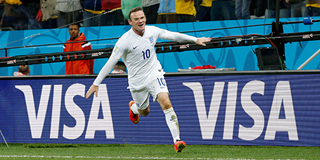Sponsorship by companies like Budweiser, McDonalds, Coca-Cola, and the convenience-food giant Moy Park brings millions of dollars to the game. But, while promoting alcohol, sugary drinks, and processed food may mean massive profits for corporations, it also means more disease and a heavier burden on health-care systems.
LONDON – One billion people watched the opening match of the FIFA World Cup in São Paulo, Brazil, and hundreds of millions more will tune in at some point during the month-long tournament. For FIFA’s six major partners and the event’s eight official sponsors, this audience is nothing short of a gold mine. Indeed, they pay tens of millions of dollars in the hope that some of the magic of the “beautiful game” will rub off on their brands – and it very well may. For viewers, however, that is probably not a good thing.
The run-up to the kick-off was not without drama for at least one of FIFA’s partners, Budweiser, which was accused of compelling Brazil’s government to overturn a national law banning the sale of alcohol inside football stadiums. Despite widespread opposition to repeal of the law, FIFA was resolute: “Alcoholic drinks are part of the FIFA World Cup, so we’re going to have them.”
Sponsorship by companies like Budweiser, McDonald’s, Coca-Cola, and the convenience food giant Moy Park brings millions of dollars to the game. But what message does it send to the global audience? Promoting alcohol, sugary drinks, and fast food may mean massive profits for corporations. But it also means worse health for individuals and a costly burden on countries’ health-care systems.

LONDON – One billion people watched the opening match of the FIFA World Cup in São Paulo, Brazil, and hundreds of millions more will tune in at some point during the month-long tournament. For FIFA’s six major partners and the event’s eight official sponsors, this audience is nothing short of a gold mine. Indeed, they pay tens of millions of dollars in the hope that some of the magic of the “beautiful game” will rub off on their brands – and it very well may. For viewers, however, that is probably not a good thing.
The run-up to the kick-off was not without drama for at least one of FIFA’s partners, Budweiser, which was accused of compelling Brazil’s government to overturn a national law banning the sale of alcohol inside football stadiums. Despite widespread opposition to repeal of the law, FIFA was resolute: “Alcoholic drinks are part of the FIFA World Cup, so we’re going to have them.”
Sponsorship by companies like Budweiser, McDonald’s, Coca-Cola, and the convenience food giant Moy Park brings millions of dollars to the game. But what message does it send to the global audience? Promoting alcohol, sugary drinks, and fast food may mean massive profits for corporations. But it also means worse health for individuals and a costly burden on countries’ health-care systems.